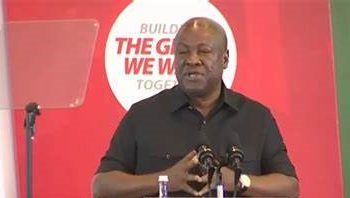Protests and demonstrations have played a pivotal role in shaping the political landscape of Ghana over the years. From the historic Kumipreko Demonstration in 1995 to more recent events like the “Let My Vote Count Alliance” demonstration, the protests by law students, #FixTheCountry, #OccupyJubileeHouse, and #OccupyBoG, these collective actions have given voice to citizens’ concerns.
However, as we navigate the complex socio-political environment of today, it is essential to critically assess the partisan politicization of protests and whether traditional forms of protests still wield the same influence, and to acknowledge the emergence of new avenues for advocacy.
Historical Perspective
The Kumipreko Demonstration of 1995 stands out as a watershed moment in Ghana’s history. Thousands of Ghanaians took to the streets to protest against the Jerry Rawlings regime, demanding democratic reforms and an end to economic hardship at the time.
The demonstration, although met with violence from security forces, marked a turning point that eventually led to democratic elections in 2000.
More practically, the Kumipreko Demonstration is credited for forcing the Rawlings regime to bend backward in reducing the rate of the Value Added Tax initiated at the time.
In more recent times, the Let My Vote Count Alliance demonstration in 2015 and the protests by law students in 2019 highlighted concerns about the electoral process and legal education, respectively.
These movements sparked debates and forced authorities to engage with citizens’ demands.
Partisan Abuse of Protests
While protests have historically served as a valuable tool for civil society, there is a growing concern about the partisan exploitation of these demonstrations.
In some instances, protests appear to be manipulated by political parties to advance their agendas rather than serving as genuine expressions of public discontent.
This is evident in political parties moving around communities, offering inducements to mobilize crowds for protests.
The partisan abuse of protests can undermine their effectiveness and could rob citizens of an avenue to register genuine discontent.
When citizens perceive protests as politically motivated rather than driven by genuine grievances, it erodes public trust and weakens the impact of such actions.
This manipulation of public sentiment for political gain is not unique to Ghana but is a global issue that threatens the integrity of protests.
The Emergence of Online Advocacy
In the digital age, the landscape of activism has expanded beyond traditional street protests.
Online advocacy and social media trends have become powerful tools for mobilization. Movements like #FixTheCountry and #EndSARS have gained prominence in Ghana and Nigeria, allowing citizens to express their concerns and demands on digital platforms and to do so even across international borders.
These online movements have proven that protests need not always take to the streets to be effective. They can harness the reach and power of social media to mobilize support, create awareness, and effect change.
However, the challenge lies in translating online activism into tangible results in the real world.
The Balance Between Old and New
In assessing the efficacy of protests in Ghana today, we must recognize that both traditional and digital forms of advocacy have their merits and limitations.
Street protests, like the Kumipreko Demonstration, are visceral expressions of collective discontent that can galvanize public attention and pressure authorities for action. However, their impact can be undermined by partisan manipulation.
On the other hand, online advocacy can reach a wider audience and raise awareness, but it may lack the immediacy and physical presence that street protests offer.
In the face of evolving socio-political dynamics, protests in Ghana remain a potent means of expression and a vital tool for holding the government accountable. However, their effectiveness depends on a delicate balance between genuine citizen concerns and political agendas.
To maintain their relevance, protests must adapt to the digital age, combining the power of both traditional and online advocacy.
Ultimately, the success of any protest, whether on the streets or in cyberspace, hinges on the sincerity of its purpose and its ability to resonate with the broader public.
















